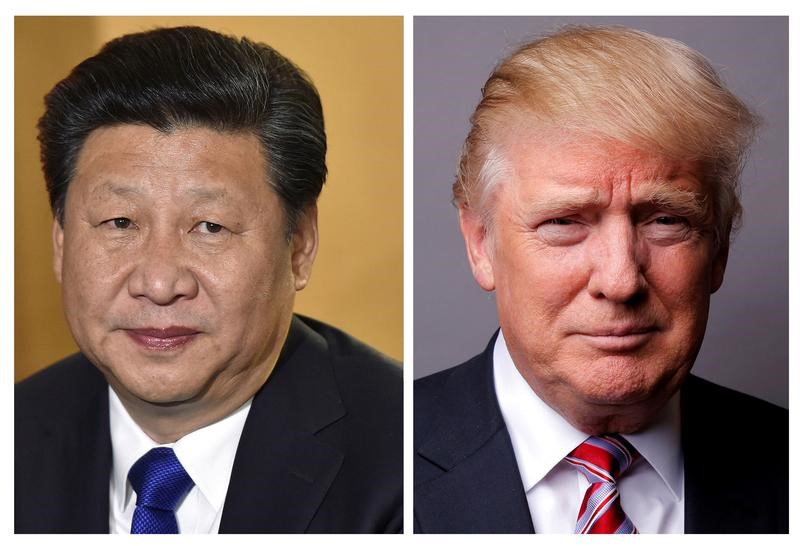 © Reuters. `New Normal’ of U.S.-China Tensions Seen Weighing on Investment
© Reuters. `New Normal’ of U.S.-China Tensions Seen Weighing on Investment(Bloomberg) — U.S.-China trade tensions may be a lingering reality that puts as much as $400 billion in investment at risk in the world’s two biggest economies, a new report said.
Chinese investment into the U.S. slumped last year to $29 billion from $46 billion, as the Asian nation restricted outbound capital and the Trump administration took a tough stance on deals, according to the report Tuesday from New York-based research firm Rhodium Group and the National Committee on U.S.-China Relations. U.S. investment into China was little changed at $14 billion.
This year, the U.S. set tariffs on steel and aluminum from nations including China and proposed tariffs on other Chinese goods worth $50 billion in trade, spurring China to retaliate. President Donald Trump last week also ordered consideration of levies on an additional $100 billion in Chinese goods, and he’s directed the Treasury Department to draft new restrictions on Chinese investment, particularly in high-technology sectors.
Such actions form an increasingly difficult backdrop for the factories and other operations that businesses have spent years building up on both sides of the Pacific. U.S. companies have $256 billion invested in Chinese firms, while Chinese companies have invested about $140 billion in the U.S., according to the report.
“This more problematic political environment is likely not just transient but rather the new normal,” Rhodium Group analysts Thilo Hanemann, Daniel Rosen and Cassie Gao wrote in the report. “Firms already invested across borders and prospective investors will have to deal with these new realities.”
Expectations have been building in recent days that the two nations will be able to negotiate a settlement to prevent imposing the fees in full. That would help assuage market anxieties that have buffeted stocks and have already made it more expensive for some American companies to operate.
The U.S. administration’s current confrontational strategy toward China links trade more closely with national security.
“The Trump administration is redefining the U.S.-China relationship by declaring China a ‘rival power,’ ” the report’s authors wrote. “This new approach indicates that more confrontational measures in trade and direct investment are likely.”
The tougher environment means Chinese companies are creating fewer U.S. jobs. Chinese firms added about 7,400 U.S. employees to their payrolls in 2017, the smallest increase in five years, according to a related report issued Tuesday by Rhodium Group and the U.S.-China committee.
Fusion Media or anyone involved with Fusion Media will not accept any liability for loss or damage as a result of reliance on the information including data, quotes, charts and buy/sell signals contained within this website. Please be fully informed regarding the risks and costs associated with trading the financial markets, it is one of the riskiest investment forms possible.
Source: Investing.com





























